What we eat has a direct impact on our entire body and the way we feel. Whether it’s an increase in energy and stamina or a blood sugar spike and eventual crash, nothing we eat is digested without affecting our bodies along the way. This chain reaction makes its way to our brains as well, meaning that diet has a direct impact on our mental health. Recent studies have shown that the gut acts as a second brain, producing around 95 percent of the serotonin the body uses on a day-to-day basis.
Feeding our bodies — and therefore our brains — with natural, whole foods instead of processed or genetically modified ingredients can significantly improve how we feel. Not only can a nutrient-rich diet improve our brains overall function, it can also protect it from stress (and it’s damaging free-radicals) and improve its ability to adapt. Below, we cover the common impacts that stress and a poor diet can have on the body, along with the foods we can eat to turn things around! The nutrients in these foods can decrease symptoms of anxiety and depression and help keep our brains functioning at their best.
Stress and the Body
The symptoms of stress can vary from person to person, but it often affects mental, physical and emotional health in a multitude of ways. Stress can appear as stiff or sore muscles, headaches, anxiety, depression and even a lack of energy or motivation. And with 18 percent of the population affected by anxiety, it’s clear that anxiety is having an impact on the day-to-day lives and overall well-being of average Americans.
The gastrointestinal tract is particularly affected by anxiety and stress. In fact, The Institute of Stress reports that 34 percent of those who experience stress say it has caused a negative impact on their stomach and digestive system. When the body senses stress or danger, it signals a craving for fatty and sugary foods, since they offer a temporary increase in energy. However, these foods end up damaging the gut’s lining in the long run. And while the stress of everyday life doesn’t seem to be going anywhere anytime soon, there are some things we can do to manage stress levels and protect our gut health.
The Brain and Gut Connection
The brain and the digestive system are in direct connection with one another, meaning that a less nutritious diet that inflames the gut will inflame the brain as well. Inflammation in the brain can manifest as irritability, anger and mood swings. These symptoms increase exponentially when a digestive disorder such as irritable bowel syndrome (IBS), small intestinal bacterial overgrowth (SIBO) or Candida overgrowth comes into play.
Regular exercise, removing or better managing stress and improving diet are the top ways to get our gut microbiome, and therefore our mood, back under control. A diet rich in micronutrients can help the body function optimally and reduce symptoms of anxiety and depression in the process. While it’s important to talk with your doctor about ways to tackle gut and brain health that are specific to your health history, a diet based in whole foods is a great start. We’re outlining 13 foods that may help reduce your stress and anxiety if you incorporate them on a regular basis.
Foods to Improve Your Mood
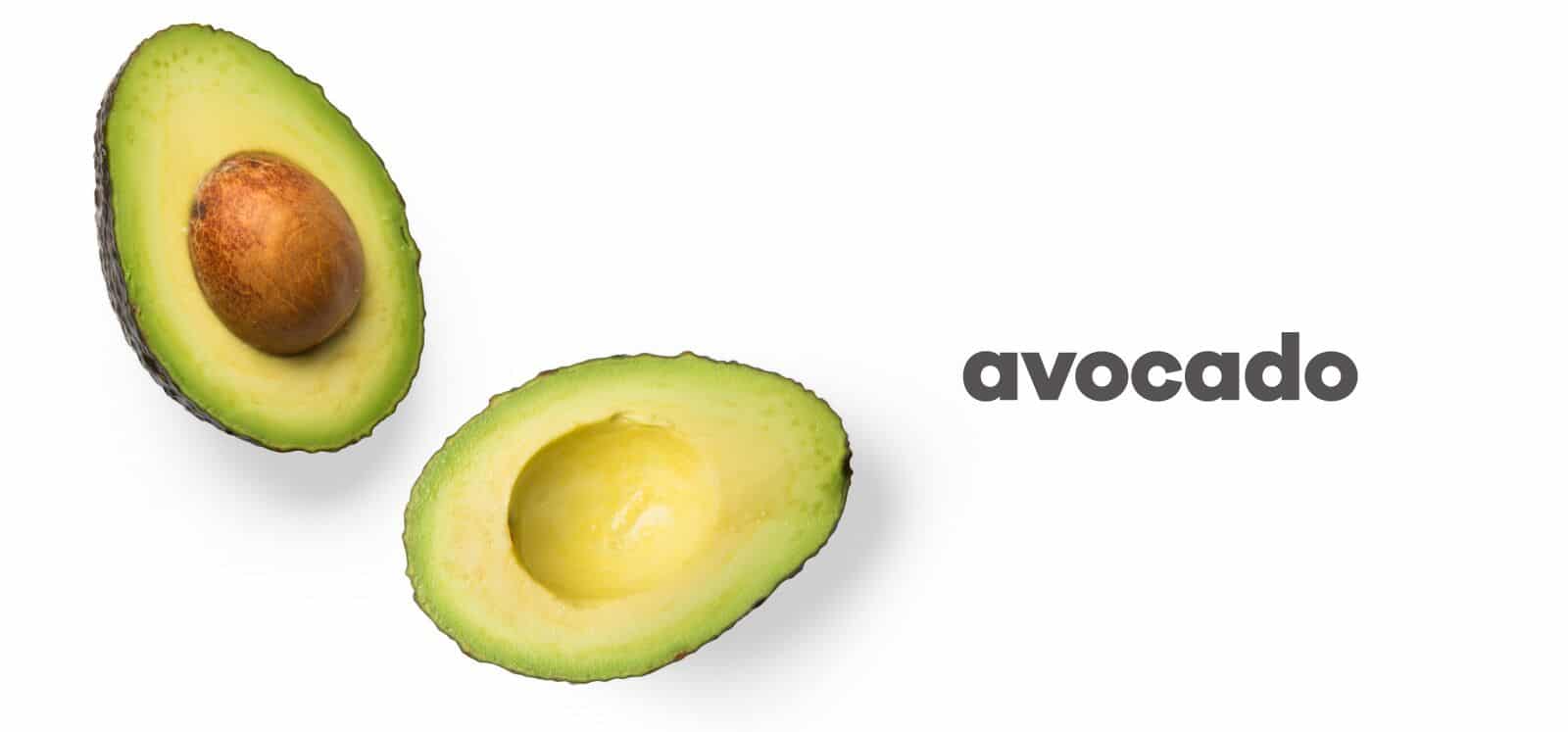
1. Avocado
Healthy fats, like those present in avocado, have been trending in recent years, and for good reason. Monounsaturated fats contain high amounts of omega-3 fatty acids, which can help decrease inflammation in the body. 60 percent of our brains are made up of fat, meaning that healthy fats are crucial to the brain’s ability to perform optimally and react to stress.
Outside of their fat content, avocados also contain a wide range of B vitamins such as thiamine, riboflavin, and niacin, which all directly affect the nervous system. Regularly eating foods rich in these nutrients can help reduce anxiety and relieve stress. Try including avocados into smoothies, salads and sauces to keep your brain and nervous system operating calmly and efficiently.
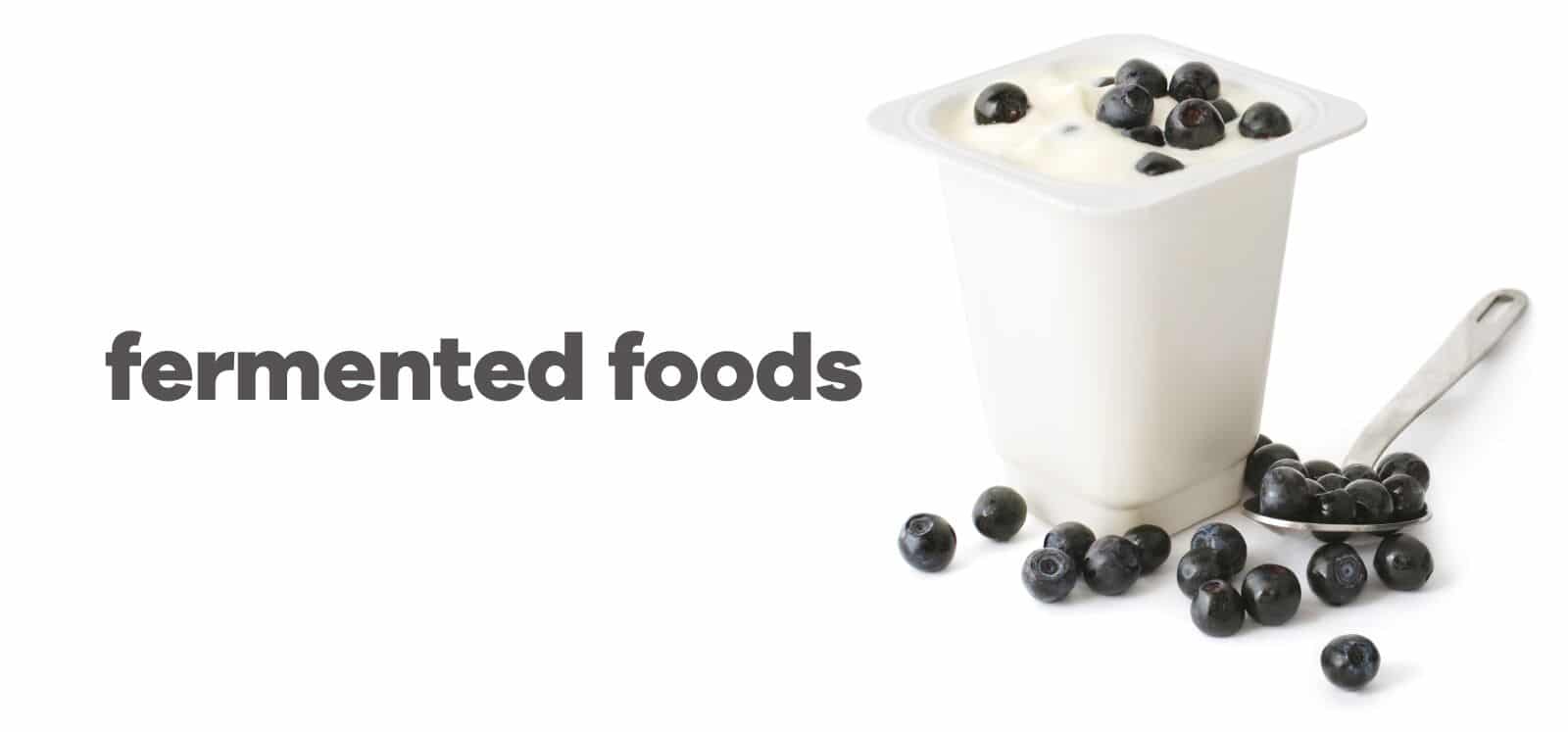
2. Fermented Foods
Fermentation is an ancient process of preserving food, in which carbs are converted into acids and bacteria (aka probiotics!) begin to develop. Probiotics are essential to balancing out the good and bad bacteria in the digestive system and can provide relief for those suffering from IBS or other digestive disorders. In fact, two of the most common strains of probiotics (Lactobacillus helveticus and Bifidobacterium longum) often found in fermented foods have been shown to reduce symptoms of anxiety and depression.
Though many foods can be fermented, the most common options are sauerkraut, yogurt, kimchi and kombucha. Since the bacteria in fermented foods help the body efficiently break down and absorb the food we eat, adding them to meals on a daily basis can help decrease bloating and improve digestion. However, it’s important to note that some fermented products contain added sugar and salt, so aim for natural products without additives to get all the benefits (and none of the downside!) of these gut-friendly foods.
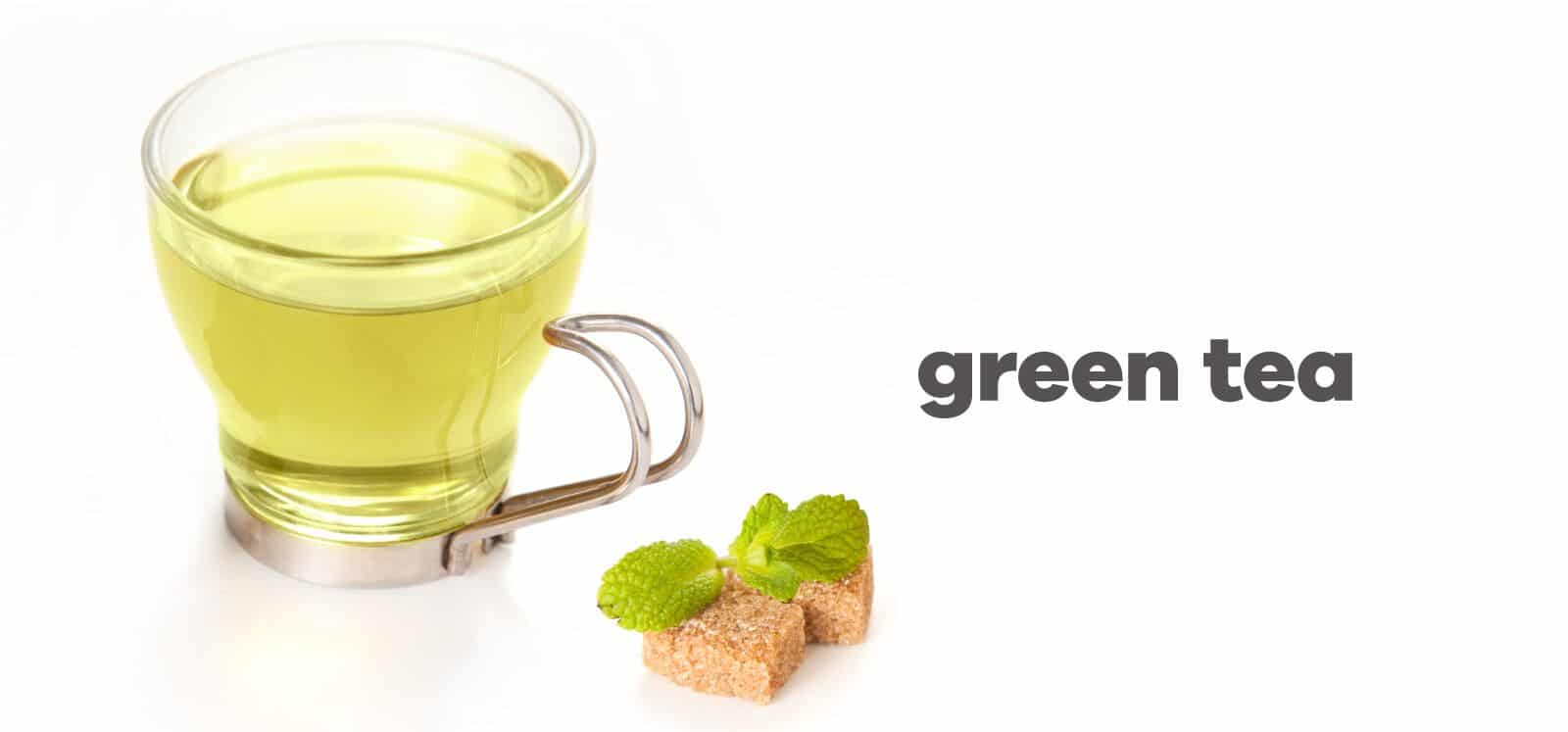
3. Green Tea
Although green tea contains caffeine, which is an anxiogenic (anxiety-inducing) substance, it’s also high in L-theanine, which has been shown to decrease levels of the stress hormone cortisol. L-theanine blunts the body’s typical response to stress, like an elevated heart rate. Green tea also contains epigallocatechin gallate (EGCG), which contains anxiety-reducing dopamine and serotonin and can improve brain health.
Those who struggle with chronic anxiety might find that reducing their caffeine intake may help manage stress levels and improve energy over time. If you are nervous about quitting caffeine cold turkey, try gradually decreasing caffeine intake over time by replacing a second or third cup of coffee with green tea instead.
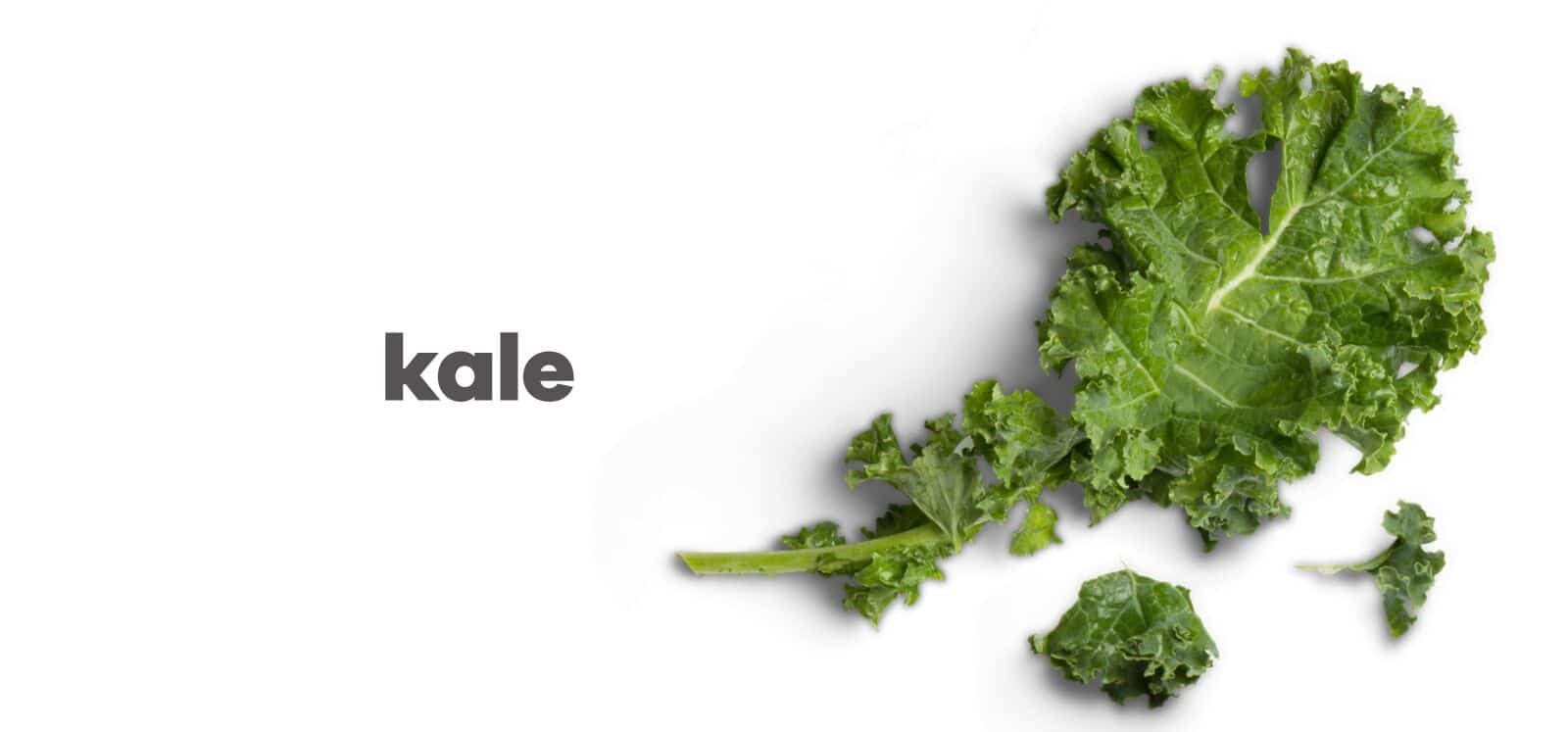
4. Kale
Sleep is a vital piece of the puzzle when it comes to brain and mood health. Since kale contains glycine, an amino acid that helps calm the nervous system, it can help improve sleep patterns. Kale can also lower the body’s temperature at bedtime, helping to signal a resting period.
Dark, leafy greens like kale help the body maintain optimal antioxidant levels and have been proven to improve brain function. Kale is naturally rich in vitamin E and beta-carotene, an antioxidant that helps to decrease inflammation and protect the body from free radicals. Kale can be used as a base for salads and veggie bowls, or added into omelettes and smoothies. Since raw kale can be hard for some people to digest, massaging it with oil or steaming before eating can help with optimal digestion and absorption.
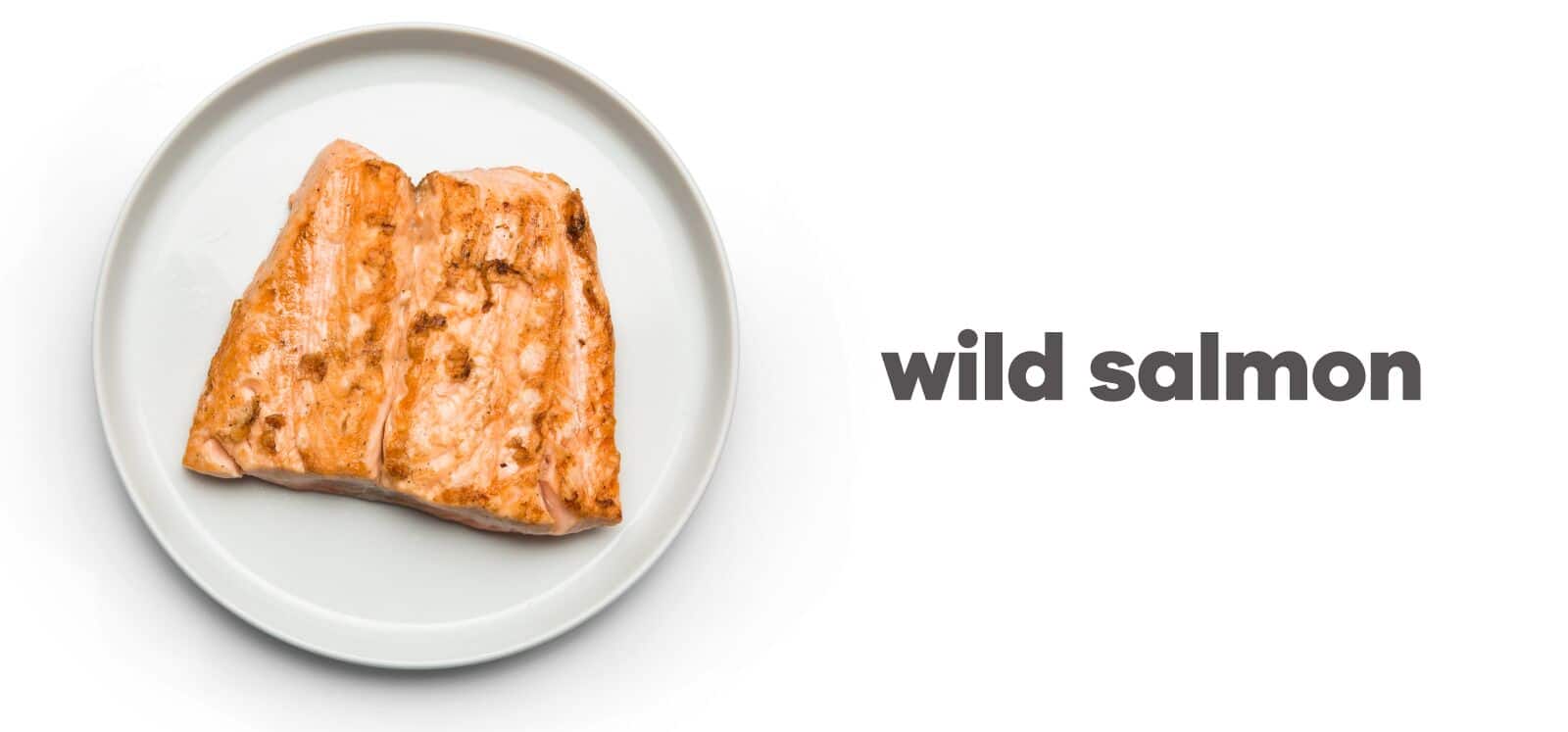
5. Wild Salmon
Some types of seafood, including wild-caught salmon, are rich in omega-3 fats, which help reduce cortisol levels and balance out adrenaline spikes that often occur during panic attacks or stressful events. Omega-3s have an important role in helping the brain function optimally and they also help decrease the brain cell dysfunction that often manifests in people with anxiety disorders.
Salmon also has high levels of vitamin D, along with eicosapentaenoic acid (EPA) and docosahexaenoic acid (DHA), which improves the brain’s ability to adapt to change in a less stressful way. This brain-boosting superfood should be eaten a few times a week to take advantage of its many benefits. It can be prepared a variety of ways, including grilling it with fresh lemon or baking it with salt, pepper and garlic powder.
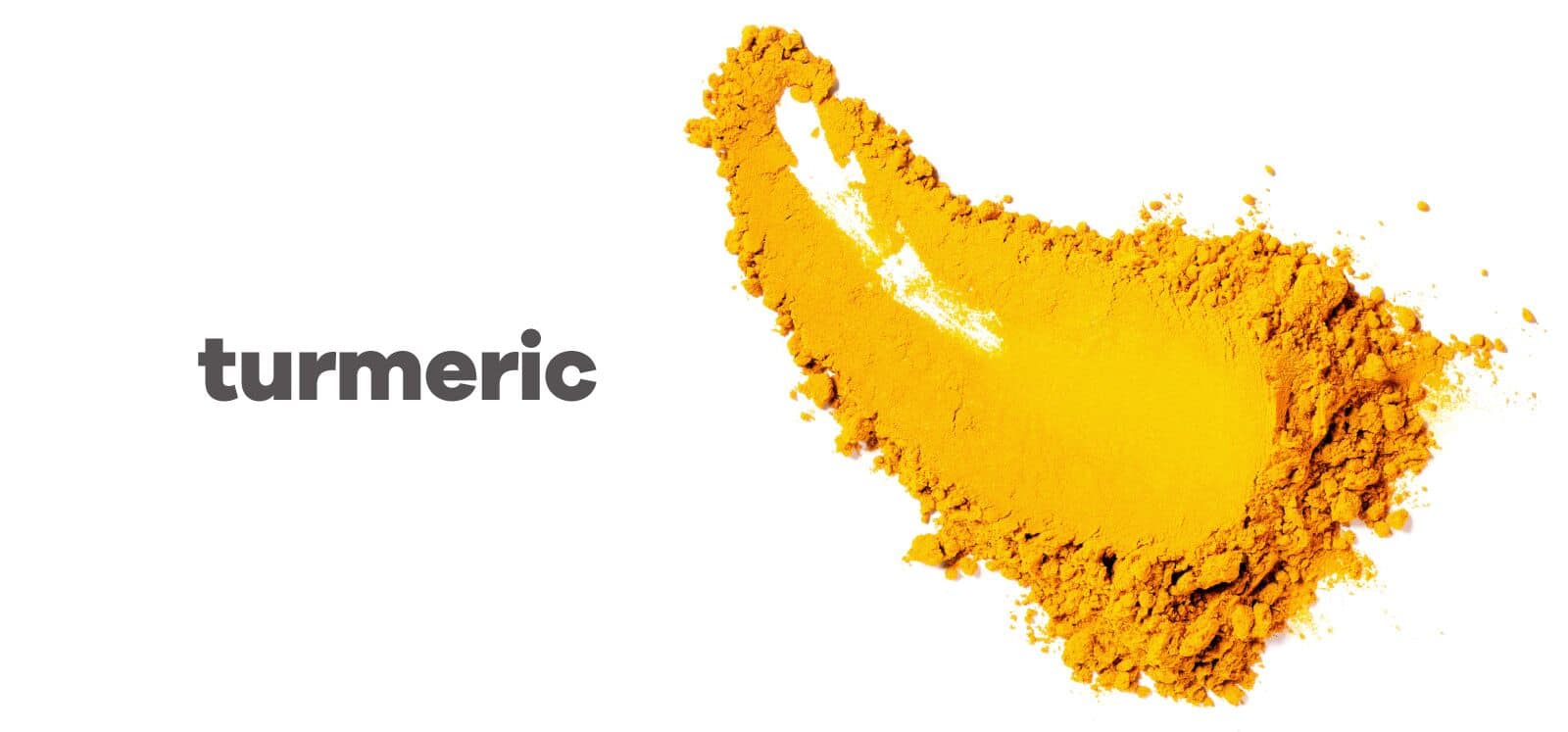
6. Turmeric
Turmeric, a spice that belongs to the ginger family, has been a staple in Indian cuisine for centuries. It has recently gained popularity in western culture, partially due to its anti-inflammatory properties. Turmeric’s main ingredient, curcumin, is an antioxidant that has been proven to not only boost omega-3 fats in the brain, but also to improve brain health and decrease brain inflammation. It’s important to note that curcumin is not absorbed well in the body naturally, but that its absorption rate can be increased (by 2,000 percent!) with the addition of cracked black pepper.
Chronic inflammation in the brain can lead to a host of other diseases and issues, including leaky gut, anxiety and depression. By using turmeric to help fight this inflammation, the body can begin to heal itself and also work to prevent a future recurrence of these issues. Turmeric can be added to a variety of curries, vegetable bowls and even lattes to provide a boost of antioxidants and anti-depressant properties. But be careful when adding this spice to your meals, since it stains easily!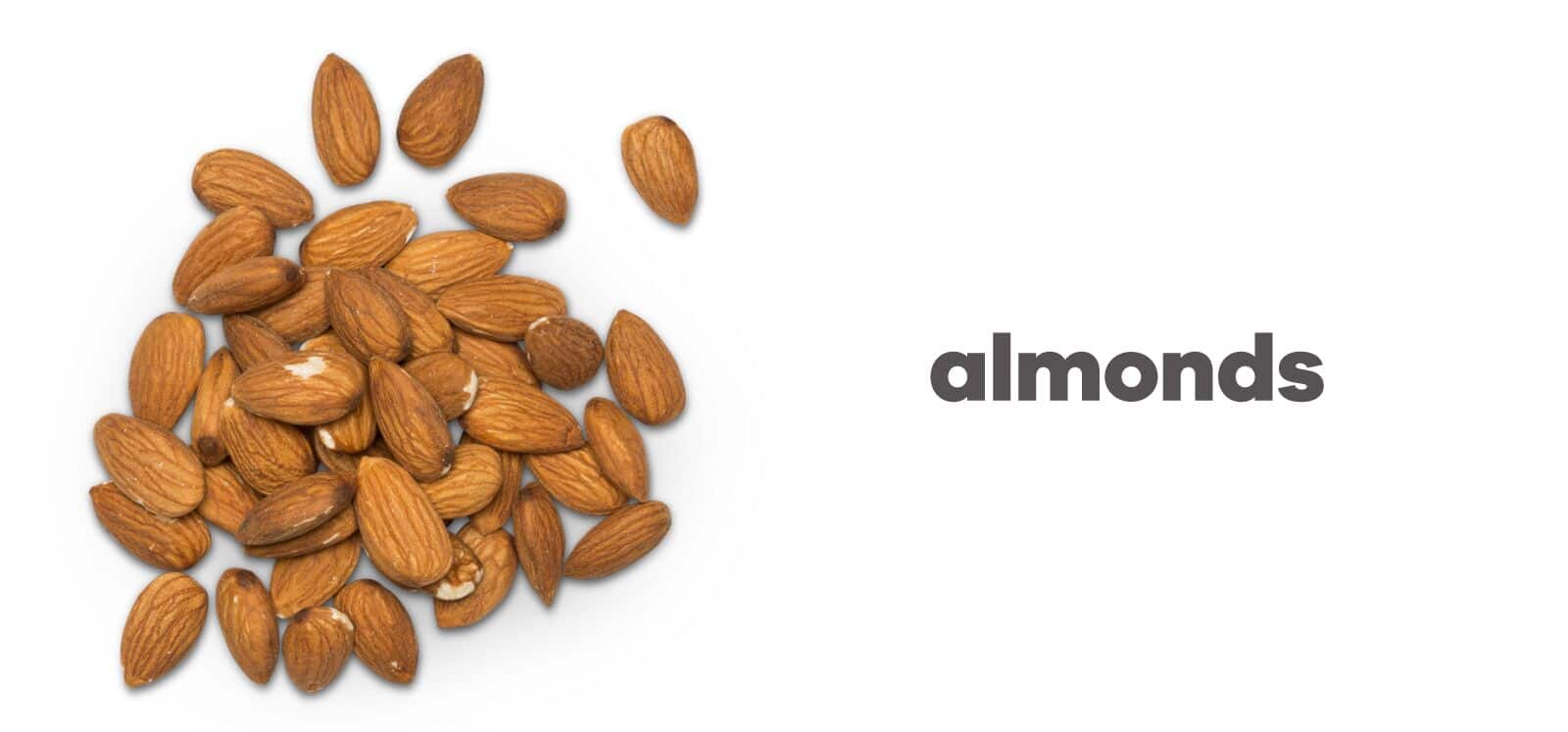
7. Almonds
Almonds are high in magnesium, zinc and vitamin E, which have been proven to both treat and prevent anxiety. Magnesium levels are particularly important for optimal brain function, since they help to increase the level of the mood-balancing neurotransmitter serotonin. Almonds also contain a high amount of the mineral selenium, which when absent in the body, can cause exhaustion, depression and anxiety.
Outside of their brain-boosting benefits, almonds are also great for the digestive system. Full of fiber and healthy fats, they help to encourage the growth of good gut bacteria while also maintaining regular digestion. Since almonds are a great on-the-go snack, it’s pretty easy to incorporate them into your diet. They can also be combined with antioxidant-rich dark chocolate for a sweet and savory treat that won’t compromise your mental health.
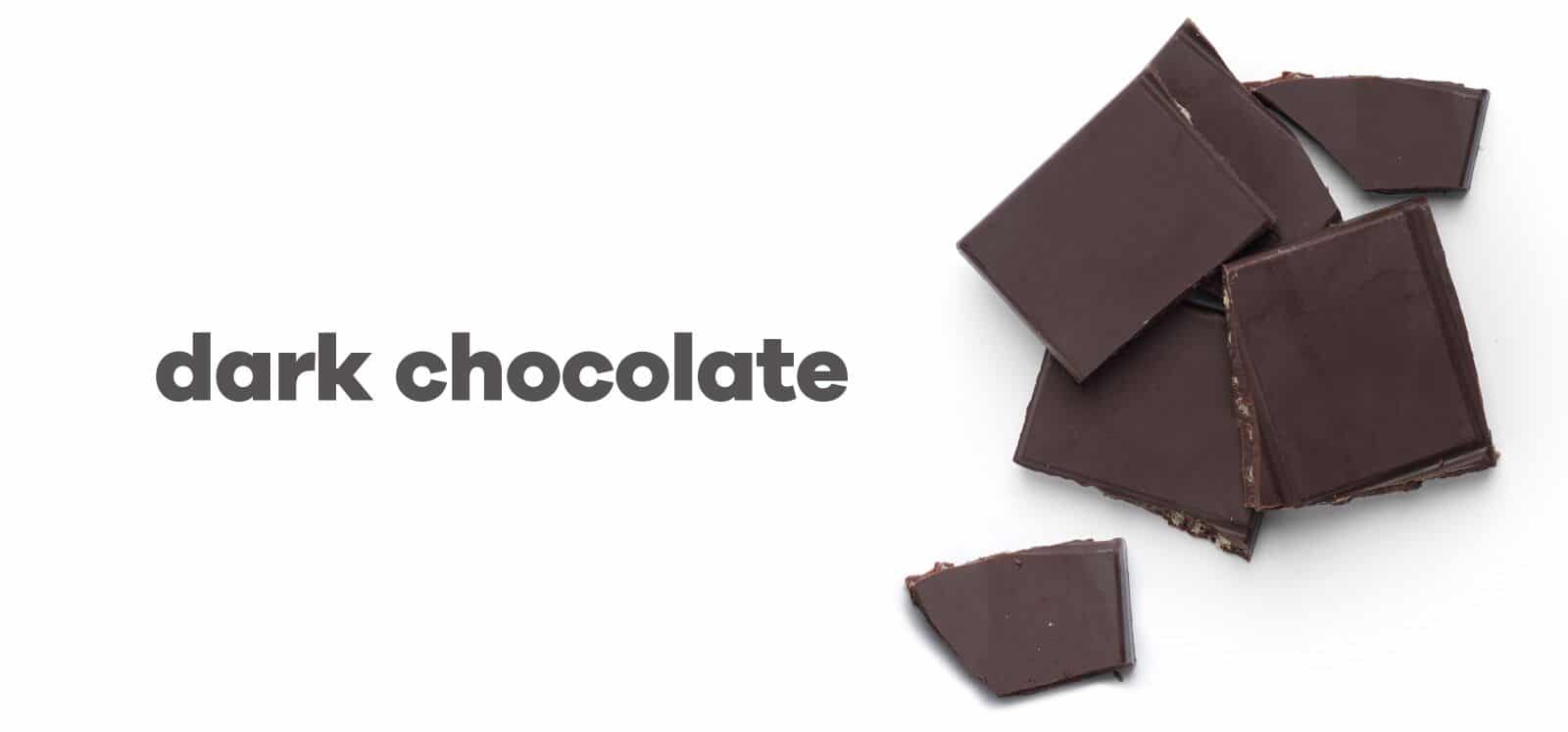
8. Dark Chocolate
While milk chocolate is often considered a sugar-packed dessert, dark chocolate is low in sugar and high in antioxidants, making it the perfect treat. Flavonols, a specific antioxidant found in dark chocolate, help increase blood flow to the brain, which in turn improves the brain’s ability to function and adapt to stressful situations.
Since dark chocolate contains the amino acid tryptophan, which results in a tired and relaxed feeling when eaten, a single serving (1-1.5oz) has been shown to induce a feeling of calm. Dark chocolate also increases serotonin levels in the brain, but research suggests that the real power lies in the taste alone, since many people associate dessert with pleasure and happiness. The takeaway? As long as proper serving sizes are followed, dark chocolate offers the body a delicious brain boost!
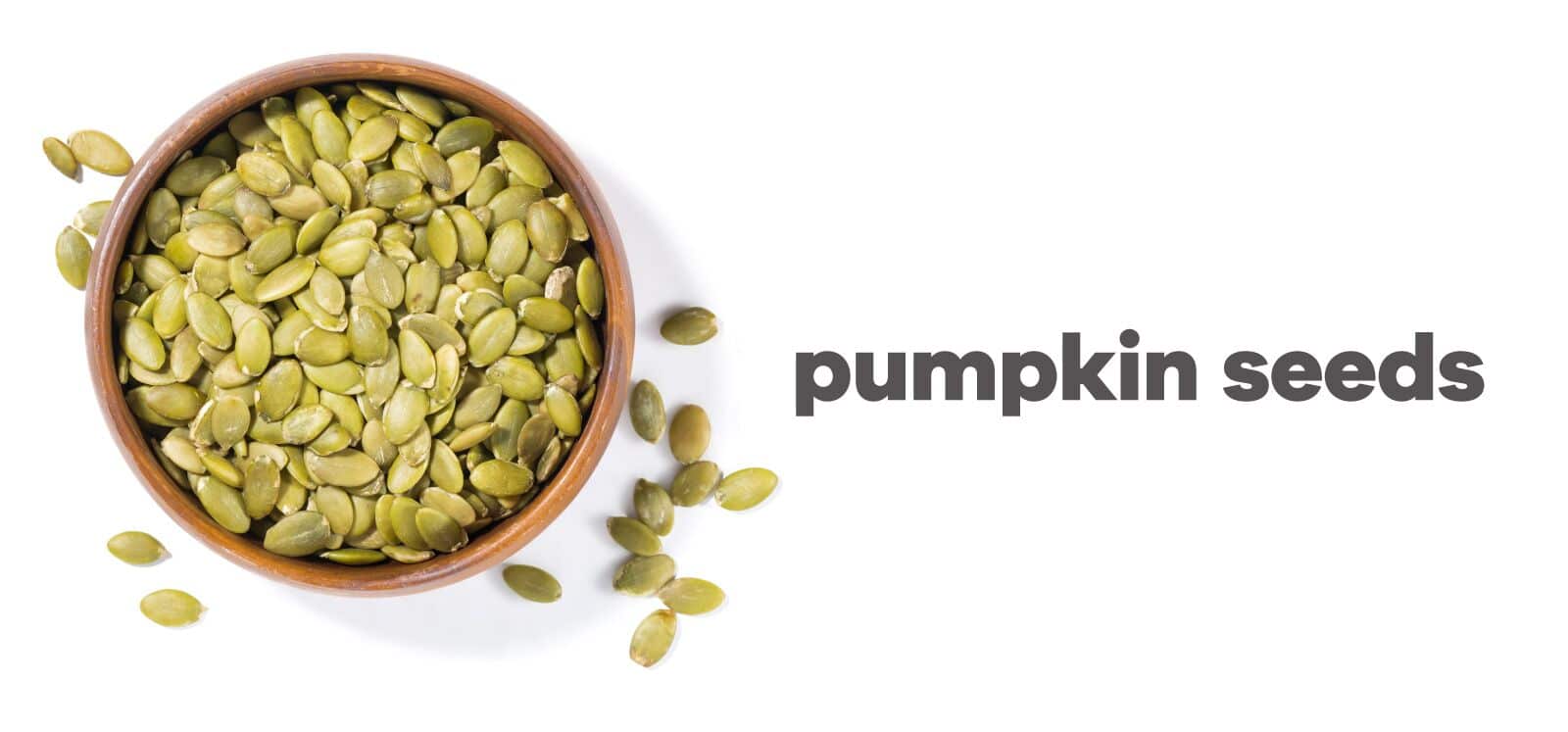
9. Pumpkin Seeds
Pumpkin seeds are a great source of zinc, an essential mineral that plays an important role in the development of the brain and nervous system. Since this development is key to fighting and preventing mental health issues like anxiety and depression, adequate consumption of zinc is vital.
Pumpkin seeds also contain other nutrients essential to maintaining optimal health, like magnesium, vitamin E, carotenoids and fiber. They can easily be incorporated into your diet as a salad topper, in soups or baked goods, or as an on-the-go snack. If you have IBS or are prone to intestinal issues, sprouting nuts and seeds beforehand may help improve your body’s ability to digest and absorb key nutrients.
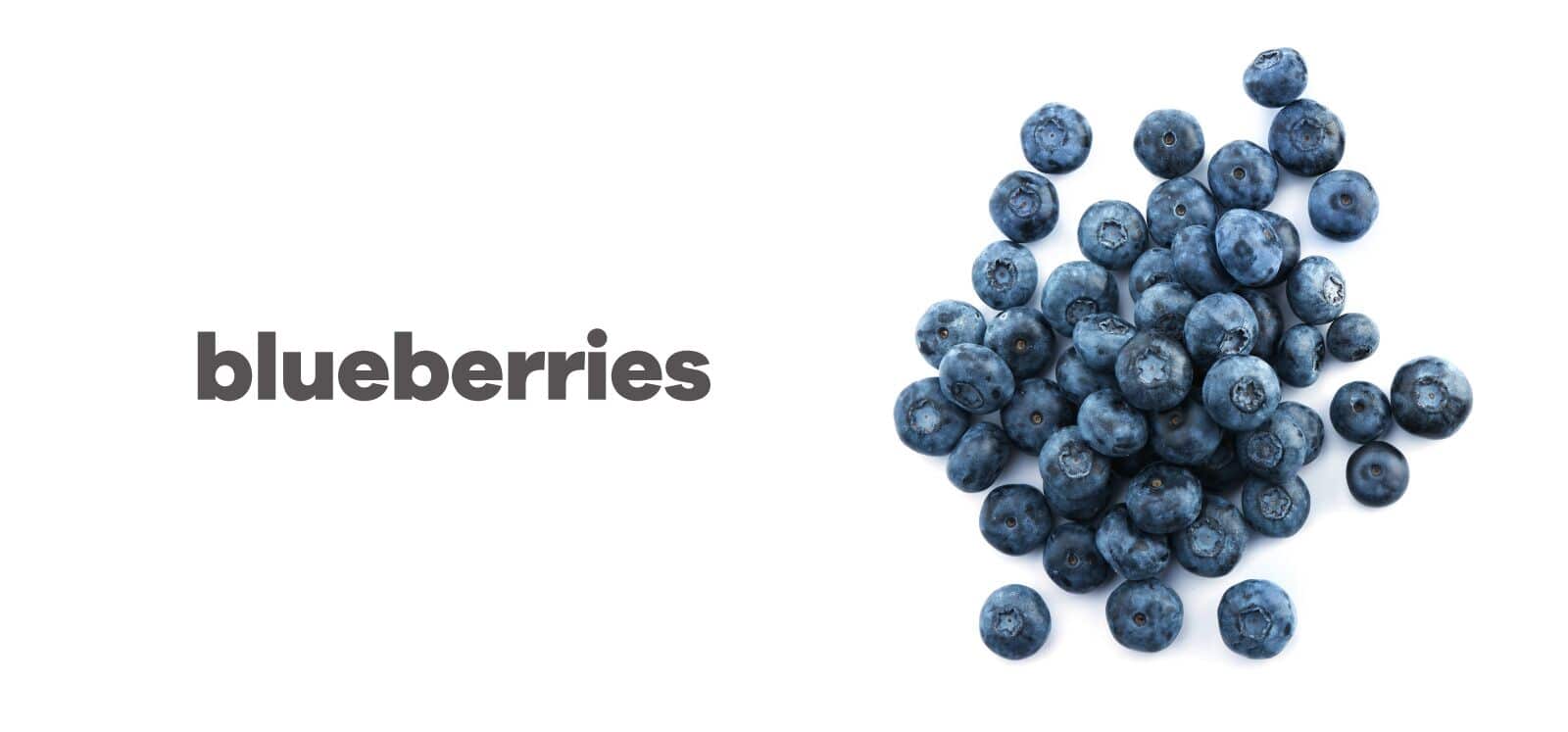
10. Blueberries
While our bodies often crave sugar when stressed or anxious, excess consumption has a negative impact on both health and gut bacteria. Blueberries offer a sweet but tart alternative for sugar cravings, and pack a punch of vitamin C that can boost the immune system, prevent and reduce anxiety symptoms, and decrease inflammation.
Flavonoids, an antioxidant present in blueberries, can improve your brain’s health and it’s ability to handle common stressors, making these flavorful berries an important part of a well-rounded diet. And while blueberries are an awesome stand-alone snack, you can also use them as a yogurt or oatmeal topping.
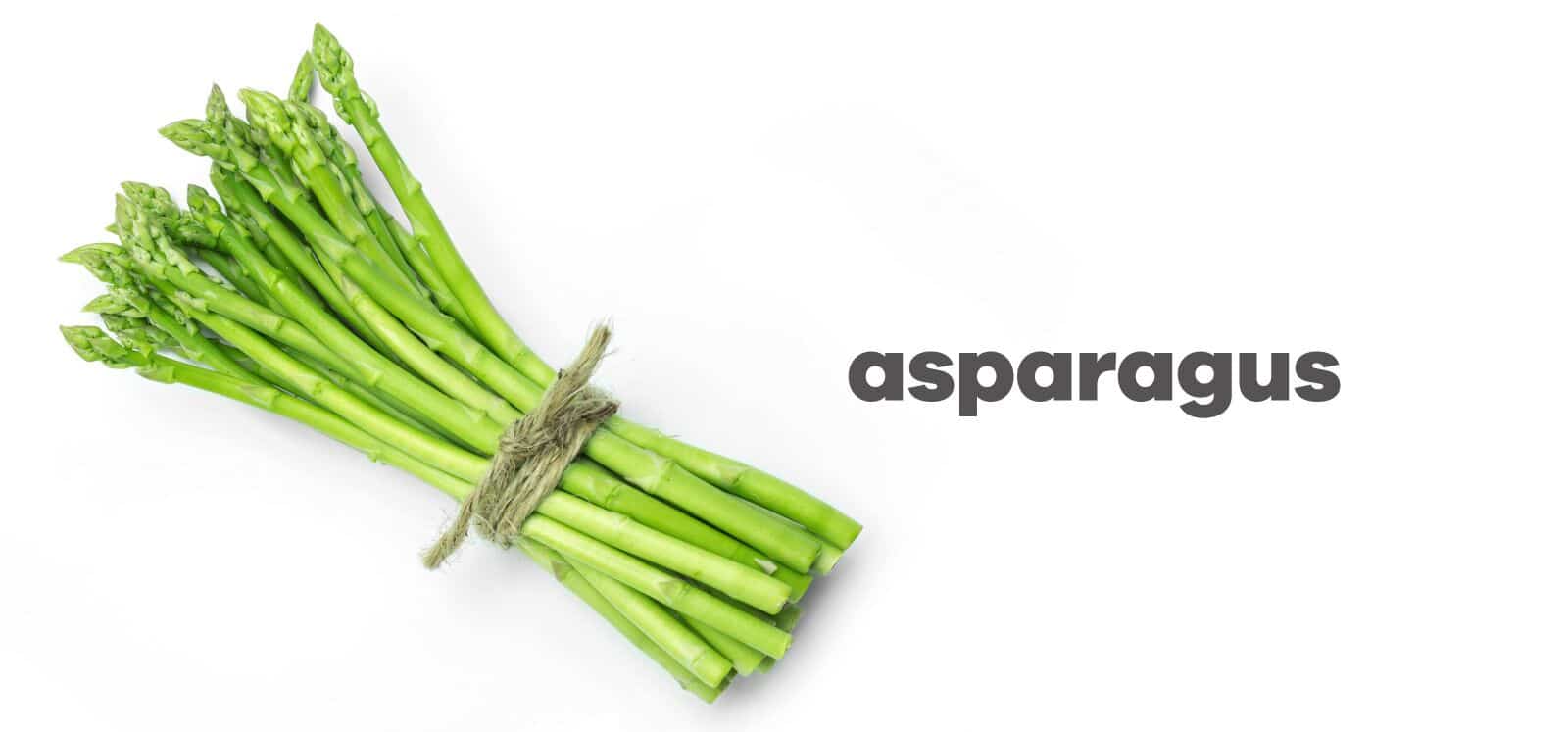
11. Asparagus
Asparagus contains folate, which is a building block for the nervous system and is important for your body’s cellular detoxification. Folate is one of the key nutrients for improved mood and decreased stress levels, since those who suffer from anxiety and depression often have lower levels of folate. Folate is also key to the production of dopamine, which controls the pleasure and reward centers of the brain. Asparagus is delicious grilled, sautéed or baked, but it can also be chopped up and used in salads or in an egg scramble.
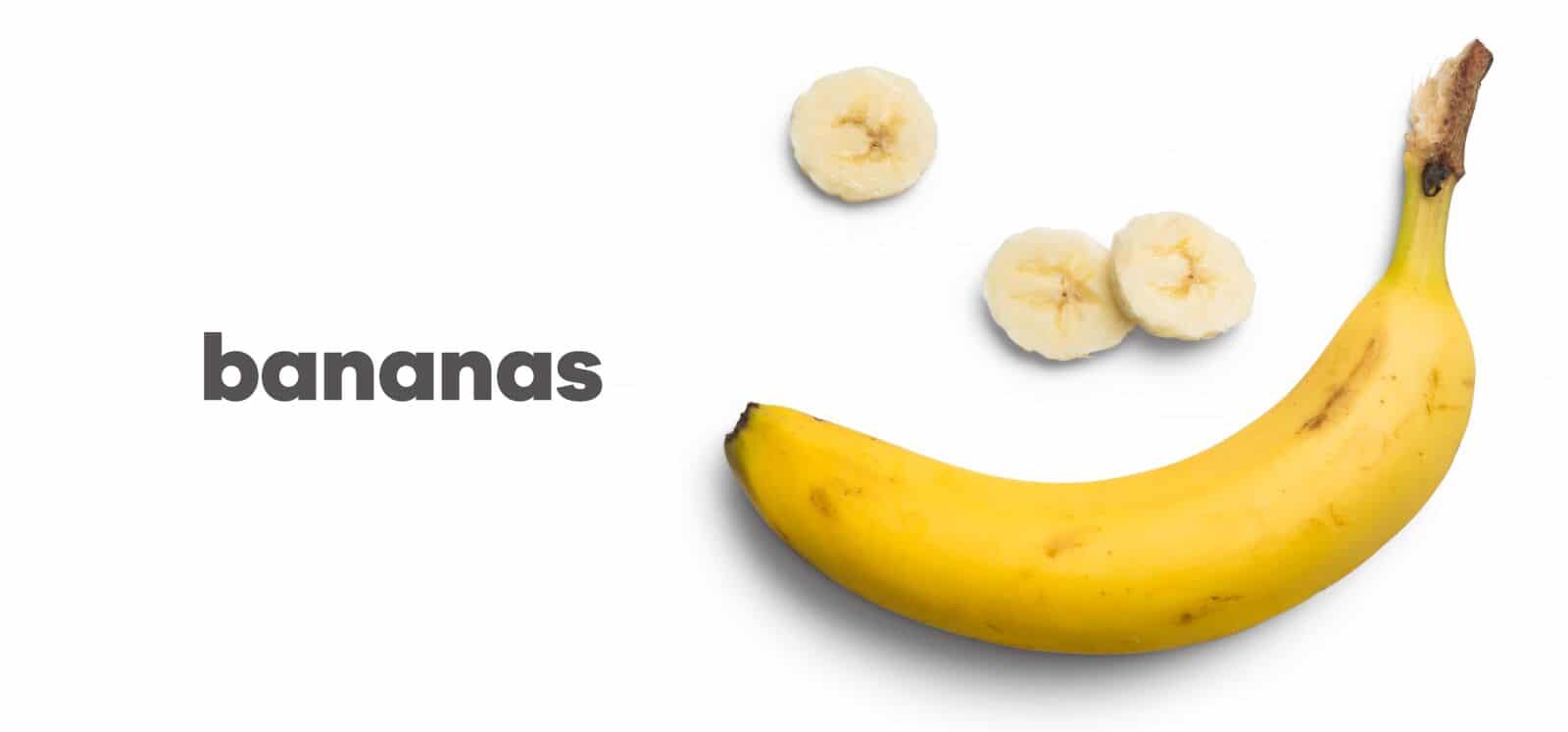
12. Bananas
Since bananas are a beta-blocking fruit, they help counteract the body’s normal stress response by preventing adrenaline (present when the body is stressed or anxious) from binding to beta receptors in the brain. Bananas are rich in tryptophan, which helps calm the nervous system and induces relaxation.
Bananas also contain potassium, which helps slow a rapid heartbeat, brings oxygen to the brain and regulates the amount of water in the body. Since the body’s normal reaction to stress includes a drop in potassium, bananas are a great way to help support your body during times of high demand.

13. Eggs
Eggs are a great source of choline, a vital part of the neurotransmitter acetylcholine, which helps regulate the portion of the brain responsible for a balanced mood and reduced stress levels. Choline is especially important for those with chronic anxiety, since studies have shown that those with higher levels of anxiety have lower levels of choline. Eggs also contain amino acids essential to the production of dopamine and serotonin in the body. To get the most out of this mood-balancing food, always go for the whole egg, since most of the nutrients are in the yolk!

Though anxiety is important for self preservation, it often does more harm than good. Thankfully, nature provides us with the nutrients we need to counteract the body’s natural anxious tendencies and reduce overall stress levels. A diet rich in a variety of whole foods, including ample veggies and healthy fats, is key to maintaining both your mental and gut health.
Here at Snap, we offer composed meals, mix-and-match components and plenty of snacks and drinks to help you feel your best, clear-headed and ready to take on any challenge that comes your way.
Sources: Psychology Today | Healthline | Amy Myers
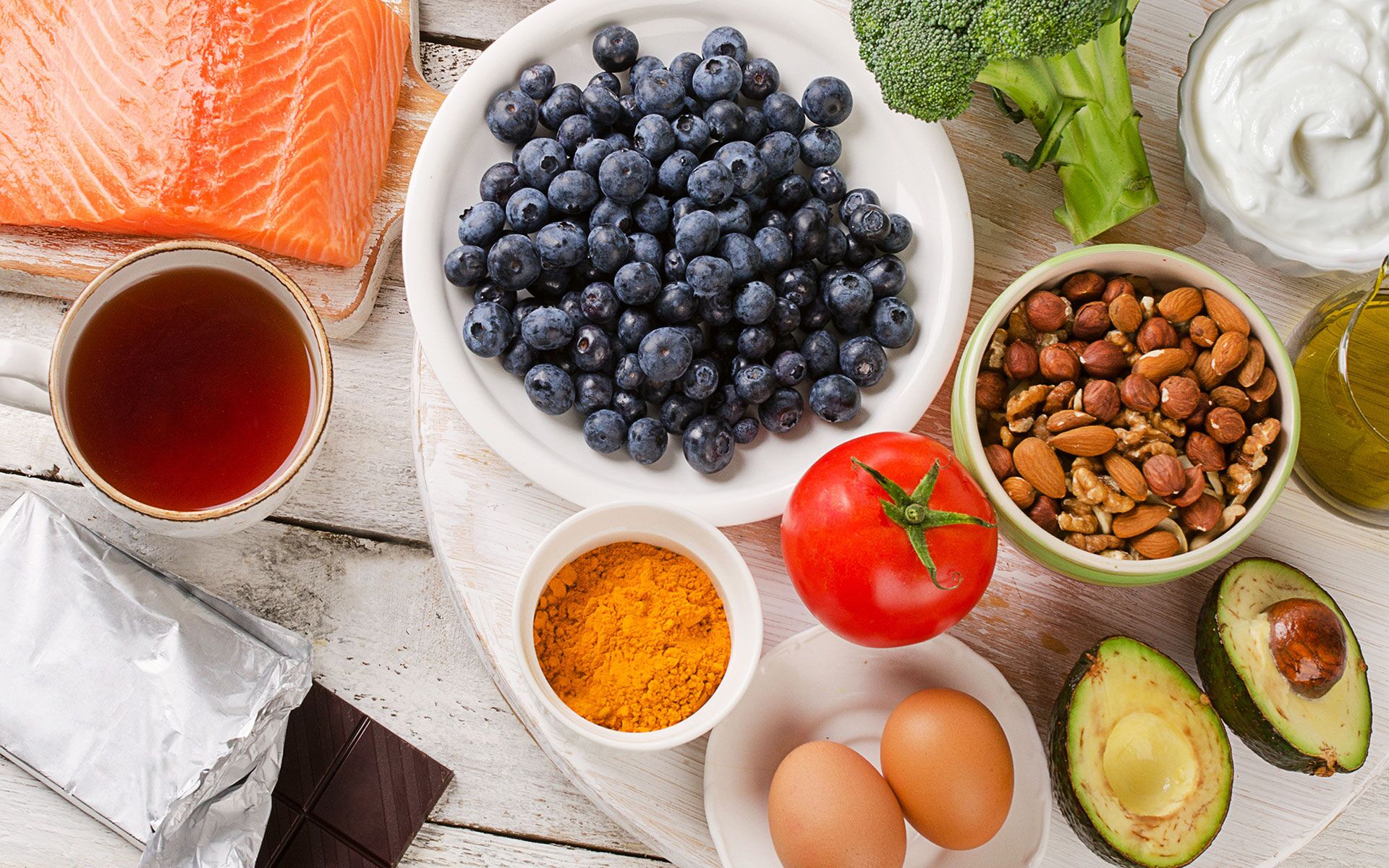




Leave a Reply
2 Comments
Great article! I didn’t know the science behind some of these foods, but most of these are already part of my diet! I love the simple, clean imagery you created 🙂
great & useful information. thanks for sharing this food list